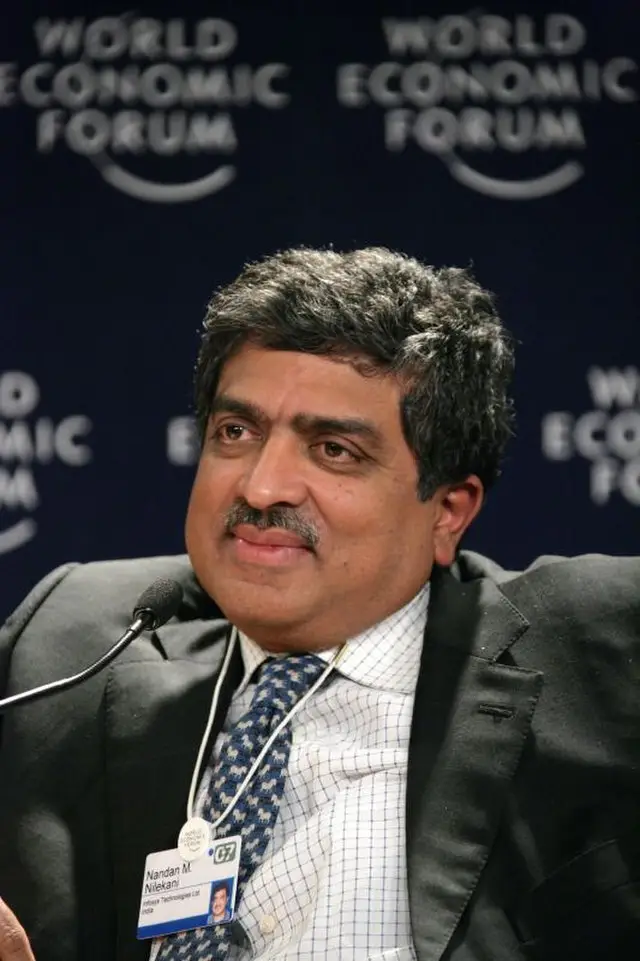Infosys co-founder Nandan Nilekani’s 5-point take on AI: hype, trust, enterprise, improving lives, and India

Nandan Nilekani Offers Insightful Reality Check on AI at Carnegie India Tech Summit
New Delhi, April 11 — In a world filled with lofty expectations surrounding Artificial Intelligence (AI), Infosys co-founder Nandan Nilekani provided a much-needed reality check during his keynote address at the Carnegie India Global Tech Summit. Speaking to an attentive audience in New Delhi, Nilekani dissected the ongoing AI conversation, focusing on both its remarkable potential and the hurdles that remain.
Nilekani’s keynote, titled “A Reality Check on AI”, stood out as a thought-provoking highlight of the summit. He tackled key issues including trust in AI systems, the often inflated promises of the technology, and India’s opportunity to harness AI for social and economic progress.
AI’s Promises and Its Challenges: Cutting Through the Hype
Acknowledging the buzz around AI, especially with advancements like ChatGPT, Nilekani reminded the audience of the importance of tempering enthusiasm. “New technologies spark immediate excitement, but real, meaningful change takes time,” he stated. He highlighted the hurdles that remain, particularly in scaling AI applications in critical sectors like healthcare and education.
Trust in AI: An Essential Building Block
A central theme of Nilekani’s address was the issue of trust in AI. He stressed that for AI systems to gain widespread acceptance, they must be transparent and accountable—especially in high-stakes sectors. “Blind reliance on AI systems that operate like black boxes is a risk we cannot afford,” Nilekani warned. He urged that AI technologies should be explainable, equitable, and regularly audited to build trust and avoid biases, particularly when it comes to sensitive fields such as finance, law enforcement, and healthcare.
India’s Strategic Opportunity: A Path Forward
Nilekani emphasized India’s potential to play a leading role in the AI revolution. However, he argued that the nation should avoid mimicking Western models. Instead, India can craft an AI infrastructure that caters to its unique needs, building on its digital successes with Aadhaar and UPI. “We’ve already laid the groundwork with digital infrastructure. Now, it’s time to integrate AI tools into these systems,” he stated.
He also highlighted the importance of AI solutions that cater to India’s linguistic diversity and the need for open-source AI frameworks that can support the country’s rural populations and small businesses.
Enterprise AI: The Quiet Revolution
While the media often focuses on consumer-facing AI innovations, Nilekani emphasized that the real transformative potential lies in enterprise AI. He pointed out that Indian IT giants like Infosys are already making strides in helping businesses harness AI to automate processes and drive innovation at scale.
“AI will not replace humans. But humans who embrace AI will outpace those who don’t,” Nilekani remarked. He encouraged businesses to adopt AI as a tool to complement human work rather than replace it, stressing the importance of upskilling workers for the AI-driven future.
AI for Social Impact: A Force for Good
In his closing remarks, Nilekani stressed that AI should be developed with a focus on real-world impact. “AI must be leveraged to address pressing challenges, such as assisting farmers with crop yields or enabling doctors to make faster diagnoses,” he said. He highlighted the potential of AI to improve lives, especially in areas like healthcare, education, and agriculture.
A Call to Action: Building Ethical AI for India
Nilekani’s address was a timely reminder that while AI offers immense possibilities, its development requires careful and responsible planning. He urged India to focus on building ethical AI systems that prioritize trust, inclusivity, and practical solutions. Policymakers, innovators, and tech leaders must work together to create a comprehensive AI framework that serves society responsibly.
Conclusion: A Vision for the Future
Nilekani’s vision for AI is rooted in ethics, accessibility, and human-centered design. He called for India to take the lead in developing AI solutions that bridge societal gaps and elevate lives. If implemented thoughtfully, this approach could position India as a global leader in ethical AI development.






